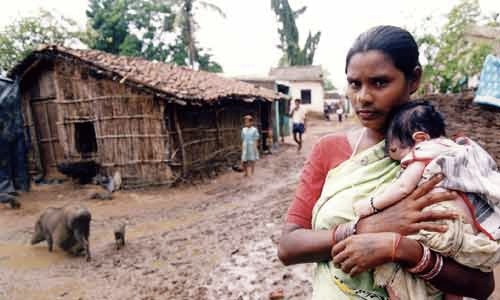最近、ワクチン3回目のブースターでよく聞かれるようになったが、応援、後押し、景気づけ、押し上げる、増加と言う意味。
この記事のeconomic "boost"は、貧困から脱出するための一時金と収入を得るための、サポート、アドバイスのことで、このboost< がきっかけで10年後までも暮らしが良くなっていくという結果が出た。
この記事のeconomic "boost"は、貧困から脱出するための一時金と収入を得るための、サポート、アドバイスのことで、このboostで暮らしが良くなっていくという結果が出たと言う。
さて、ワクチンブースターをオミクロン感染抑制のために政府が奨励しているが、3回摂取しても感染してしまう場合もある。 短時間で作り上げたワクチンだから、莫大なコストがかかっている。だからワクチンを何回も消費しなければならないのかな?治療薬が薬局で買えるようになるまで待たされるのかな? 症状もない、風邪とかわらないなら、当然学校や仕事に行くでしょう。だからまん延してしまう。
検査薬とお薬が家庭に常備されるようになってほしいものです。

画像:impoverishedindia
2022/1/17 level 8
One-Time Investments Reduce Poverty for 10 Years
1回の出資で10年間も貧困減少
Researchers from the Massachusetts Institute of Technology have found that giving people living in poverty a one-time economic "boost" is enough to improve their lives even 10 years later.
マサチューセッツ工科大学の研究で判明--貧困の家庭に1度の”経済状況を押し上げる支援”で10年後でさえ暮らしは良くなる。
The study was based on a program targeting people living in extreme poverty in West Bengal, India.
極貧の地域インドの西ベンガルの人々を対象に調査した。
The program started in 2007, offering 266 households the choice of receiving either farm animals — cows or goats — or *inventory for other types of small businesses.
266世帯に家畜または始められる小規模の商売のリストから選び、それを受け取るプロジェクトを始めた。
*inventory ここでは棚卸業務の意味ではない
Eighty-two percent chose the animals. The households were also given an allowance of about $7.60 a week for 30-40 weeks, and 18 months of weekly visits for health, life and business advice.
82%が家畜を選んだ。その家庭はさらに週に$7.60を30-40週間、援助金を得て、健康面、事業のアドバイスも得た。
The researchers examined the effects of this economic boost with surveys 18 months after the program began, then after three years, seven years and 10 years.
経済状況を促進する効果を調べた---開始して18ヶ月後、更に3年後、7年後、10年後
The economic well-being of the households was measured by how much they spent on goods and services, their household incomes, food security and health.
世帯の経済的に良好な状態は、買った商品や使った光熱費、通信費など、収入、食品の安全度、健康状態で測定した。
The results were then compared with similar households that chose not to take part in the program.
同じ程度経済状況の家庭で比較した。
After 10 years, participating households went from spending an average of $1.35 a day per person to an average of $3.53 a day per person.
10年後、参加した家庭は支出が増えた---一人1日あたり$1.35から$3.53に。
Households that didn't take part in the program only went from spending $1.35 to spending $2.90 per person.
不参加の家庭は$1.35 から $2.90 に。
Participants' household incomes also rose from $170 a month after 18 months to $680 a month after 10 years.
参加した家庭の収入は 1か月$170が、18か月後には $680に。
Non-participating households saw an increase too, but only from $144 at 18 months to $497 at year 10.
不参加の家庭も上昇したが、18ヶ月目の$144から10年目で$497に。
The study noted that at first the participating households earned more just by having more farm animals.
最初は、参加した家庭は家畜を得たことで利益を得た。
However, those same households were then better able to find new and different sources of income over time.
しかし、そのような家庭はその後、長年に渡って新たに違う方法で収入を得た。
The participating households also experienced less food insecurity and had better health.
良くない食品の摂取は減り、健康状態は良くなった。
"The social benefits seem to be overwhelmingly larger than the costs," said study co-author Abhijit Banerjee.
社会還元は、かかった費用より圧倒的に大きいようだ。
The researchers determined that the program cost about $2,200 per household — but resulted in about $8,200 in benefits for each household after 10 years.
調査員は1世帯に $2,200の費用をプロジェクトに使うと決めたが、10年後各世帯の利益は$8,200 に上がっていた。
記事引用:
![]()